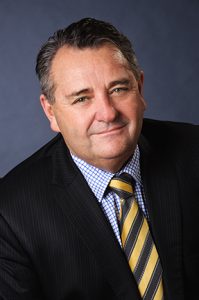As the fallout and ramifications of Dover Financial Advisers (Dover) demise continue to reverberate following the group’s decision to hand back its AFSL and it has exposed the immense flaws in the Australian licensing regime.
- Paul Tynan
- Tuesday, June 19, 2018
- www.connectfsb.com.au
It clearly highlights how the current structure favours large institutions and not the advisers and their clients.
Not only are Dover’s former advisers unable to provide advice to their existing clients, they have an almost impossible task of finding a new AFSL within a three-week timeframe.
The normal process when a practice is sold, a deed of release is provided from one licensee to the other with a copy forwarded to the product provider to release remuneration accordingly. To make matters worse for the affected advisers, there’s no guarantee that product providers will release any revenue – with some manufacturers affirming they have no intention of passing on any revenue at this time.
As if this situation and time-frame wasn’t bad enough and things couldn’t deteriorate any further, ASIC has warned potential AFSL’s that they must be diligent in processing any exDover advisers – further hindering their endeavours.
Is it any wonder then that several institutional dealer groups have said they will not licence or allow their advisers to buy any ex-Dover businesses. Everyone seems to have forgotten that Dover’s former advisers are small business owners who have staff, families and financial commitments to meet. Their advisory practices represent a lifetime of effort with the ultimate exit and succession objective being sale of the business to fund their retirement aspirations.
Through no fault of their own, Dover’s former advisers find themselves currently not receiving any income with financial obligations to meet, whilst juggling the dual challenges of finding a new AFSL and then having to negotiate with product providers to release their revenue entitlements.
What did Dover advisers do wrong that warrants this appalling retribution when they are forced to work within a licensing framework that is biased against both the adviser and their clients.
The current scenario is the perfect nightmare for our advice industry.
Who cares about the well-being of thousands of clients, their families and businesses who have lost their advice partner because of the financial advisory sector’s licencing system? Let alone 400 adviser / SMEs and their staff who have effectively become unemployed. This is not a one-off event.
This year I have counselled a number of advisers who have lost their businesses due to the actions of their licensees. On one occasion, an adviser had self-reported to his licensee about an internal process issue, who in turn revoked his license resulting in the loss of his business and a million dollars of recurring income.
If consumer confidence is to be restored, the entire advice community together with ASIC must work together to support and transition the 400 ex-Dover advisers to new AFSLs.
The silence from our captains of industry has been deafening and highlights the silo mentality that exists within the sector. But the most damning outcome of this fortress mentality by the industry’s institutions, key stakeholders and regulatory bodies is that their response has been to a focus on self- interest which is not aligned or reflects the best interest needs of the consumer.
I call on ASIC and the industry to work together to ensure the smooth transition of exDover advisers to new AFSLs so that their clients can continue to receive financial advice and service.

